How to enhance your brain function and memory?

Cognitive ability is humanity’s most cherished possession. All the development around us has resulted owing to this 1.4 kilograms of tissue which sits on top of our heads. Curiosity about how the brain works, how emotions are generated and felt, or how the unlimited amount of data is stored in the human brain has kept scientists on their toes for very long now. Thankfully, now we have some methods including certain exercises and dietary modifications that can help one to unleash the marvels of human intelligence and cognition which have been summarized in this article.
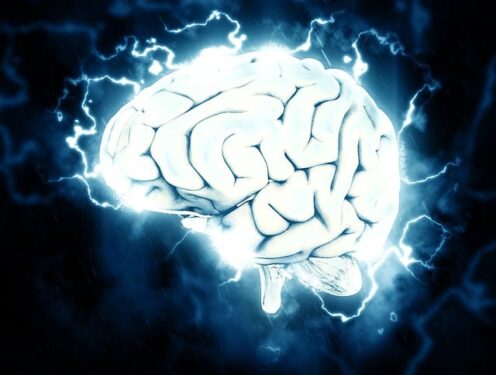
Human brain
-
Regular physical exercise
Taking in regular exercise has the ability to modify the human brain in positive ways by increasing the amount of blood flowing toward the head. By moving your body, you can avoid dementia, decrease your chances of Alzheimer’s, and boost your memory.
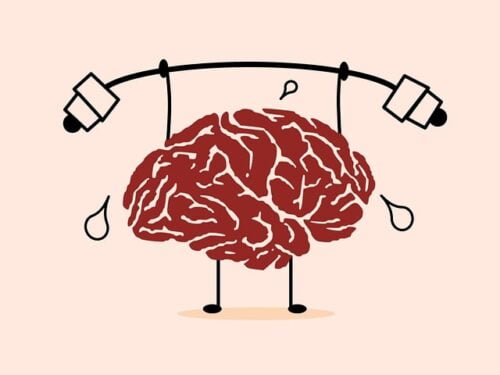
Exercise positively impacts brain function
A prominent name when it comes to the impact of exercise on human brain health is that of Dr. Wendy Suzuki who is a professor of neuroscience and psychology at NYU. Dr. Suzuki has spent a lifetime designing and conducting research on this topic after which she has devised an exercise plan particularly helpful for improving mood, memory, and our thinking organ power. This exercise includes:
- 10 to 20-minute brisk walk thrice a week or 150 minutes per week
This least amount of exercise can also slow the aging process thus increasing youth and longevity.
-
Frequent mental flex
Only staying active physically and not engaging in mentally challenging tasks can result in the rusting of brain efficiency. Just like our other muscles, the brain tissue also needs to flex. Thus it is important to constantly give your brain something to work on as learning new things can not only expand your brain but also increase the number of neuronal connections in it resulting in a stronger brain. The activities you can do for this purpose include:
- Learning a new language
- Reading a book
- Solving crossword puzzles
- Playing mentally challenging games
- Learning to play a musical instrument
- Taking a new hobby
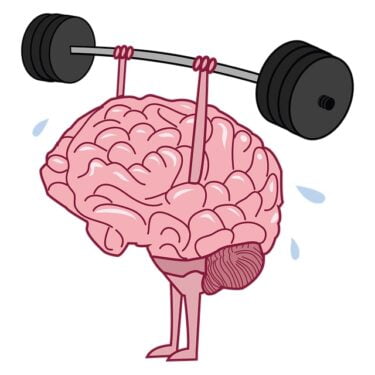
Flexing your brain by doing mentally challenging tasks
-
Undisturbed ample sleep
When new sleep, our brain has to remain active to perform an essential task i.e. to organize neural data, delete the junk and fluff, fortify certain neural connections, shift learned information from short-term memory to long-term memory, in short, clean the brain. For all of this to happen, the brain needs time and has to be free from the responsibilities it has when you are awake. Therefore, shutting down your daily activities for 7 to 8 hours every day by sleeping helps your brain to get this maintenance time it needs to increase and maintain its efficiency.
Research has indicated a sharp decline in brain function associated with poor sleep habits. Dr. Mathew Walker, a neurologist, and a sleep expert, explains in his famous book titled ‘Why We Sleep’ that if you get less than 7 hours of sleep for 4 to 5 days in arrow, your blood glucose levels start to vary significantly so much so that you can be misdiagnosed as a pre-diabetic. He also argues how less and constantly disturbed sleep puts one at risk of aging and earlier death.
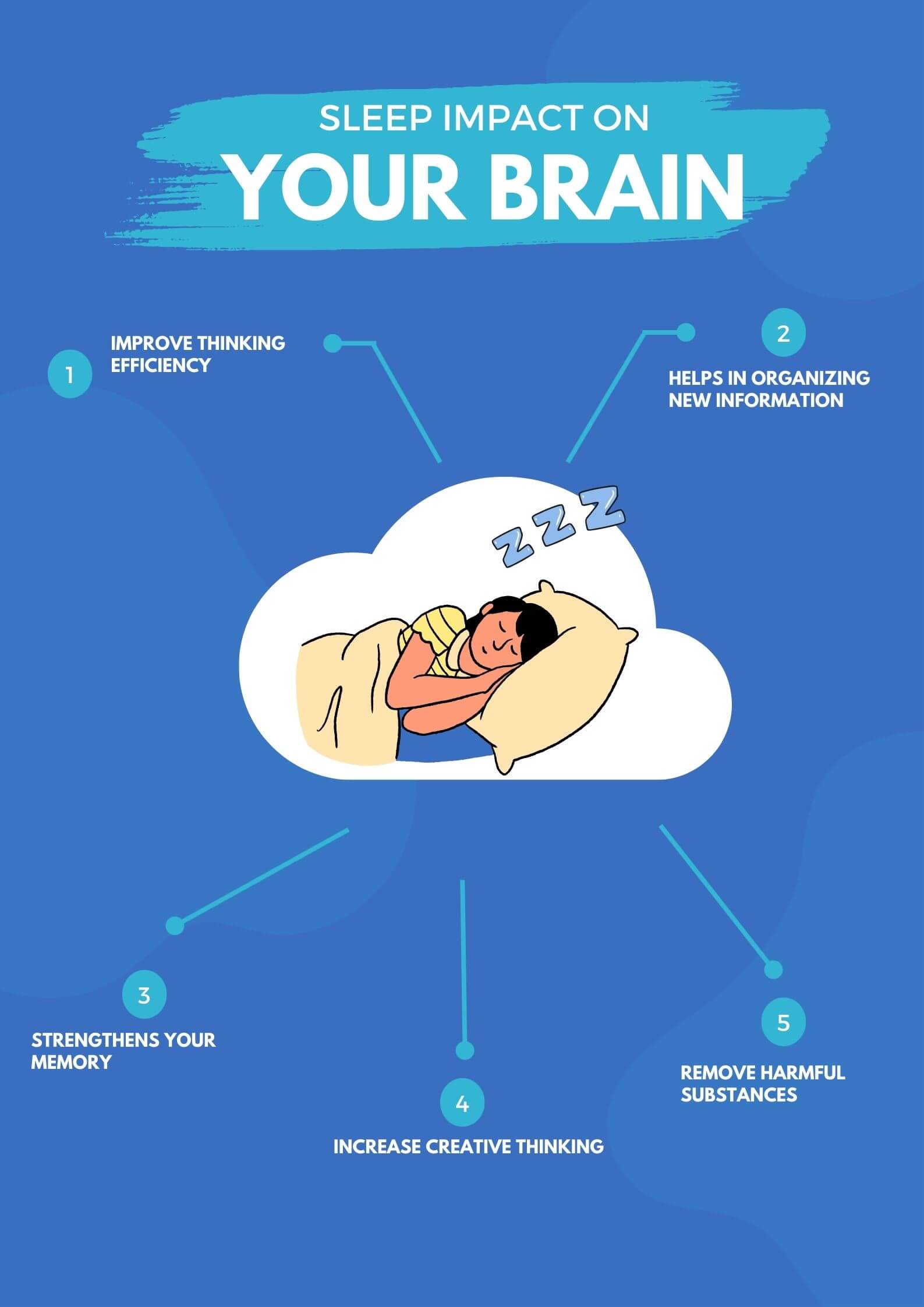
Impacts of sleep on the human brain
-
Dietary modifications
The importance of diet cannot be diminished owing to its essential nature. What we put into our gut has a prominent effect on how our bodies work including our thinking organs. Dr. Lisa Mosconi, the author of the acclaimed book ‘Brain Food’, has argued that a balanced intake of certain food items significantly increases our cognitive power. These food items include:
- Turmeric
- Chocolate
- Almonds
- Blueberries
- Black caviar
- Coconut oil
- Flax seeds
Research conducted by Dr. Mosconi has also indicated that people who eat a Mediterranean diet are less likely to have Alzheimer’s as compared to those who eat a lot of spices and junk food.
Furthermore, Jim Kwik, Elon Musk’s brain coach, is also an advocate of brain health and the diet which can unlock limitless brain power. He has enlisted in his book ‘Limitless’ 11 foods for enhancing brain power.
- Water
- Avocados
- Blueberries
- Broccoli
- Coconut oil
- Eggs
- Green leafy vegetables
- Wild salmon
- Turmeric
- Walnuts
- Dark chocolate
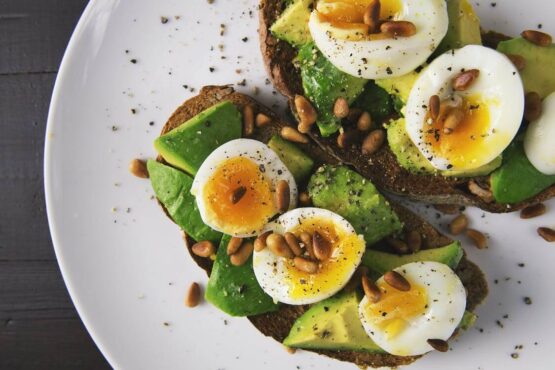
Eggs and avocado : Good combination for brain
-
Water intake
Dehydration is a common cause of brain inefficiency as water is a major component of cerebrospinal fluid. It helps clear up all the waste from the CSF which further enhances mental agility. Therefore, a daily intake of 1 to 2 liters of water has a mammoth impact on your mental power. Moreover, the consumption of aloe vera juice, as well as coconut water, is also useful to prevent or manage dehydration. In addition, water-rich foods can also be a great source of replenishment. These include:
- Cucumber
- Watermelon
- Grapefruit
- Zucchini
- Lettuce
- Celery
- Cantaloupe
- Peaches
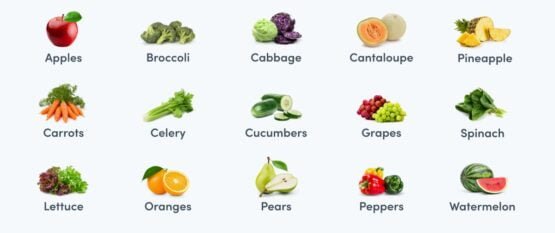
Hydrating foods
-
Having friends
Being socially isolated pushes a person towards stress and depression, conditions that deeply impact the human brain and limit its abilities. Therefore, having a healthy social circle filled with intimate family and friends boost a person’s mood and confidence and reduces the chances of brain damage.
Conclusion
The brain is the most fascinating organ in the human body which has attracted many researchers. Scientists have been trying to understand it better and unleash its power. Although its power isn’t less, there are ways to make it unlimited. By adjusting one’s diet, lifestyle, and water intake, it is easy not only to maintain the brain but also to enhance its activities.



















